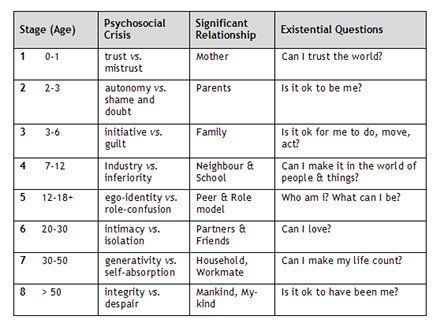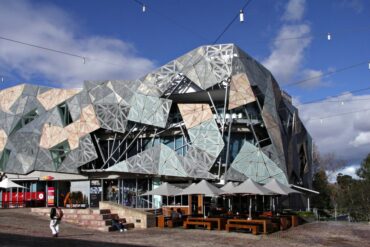Welcome to the World of Growing Wonders: Stages of Development by Age Guide for Parents
Hey there, super-parents! ? Are you ready to dive into the fascinating journey of your child’s development? Understanding the various stages of childhood development can be quite the adventure, and we’re here to guide you every step of the way. From their first gummy smile to the last wave goodbye as they head off to college, each milestone is precious. Let’s unravel the mysteries of growth together!
Infancy: Birth to 1 Year – A Time of Rapid Growth
Imagine being brand new to the world and absorbing everything like a sponge ? – that’s infancy for you! During this time, your little one will hit remarkable milestones.
- 0-3 Months: At this stage, your little stars will focus on faces, respond to sounds, and startle at loud noises. They’ll explore by putting things in their mouths and begin to make those adorable cooing sounds we all love!
- 4-6 Months: Get ready for a core-strengthening workout with lots of tummy time! Your infants will start to roll over, sit with support, and might even begin to babble, imitating the sounds they hear.
- 7-12 Months: Curiosity takes the driver’s seat as babies start to crawl, pull to stand, and some may take their first wobbly steps. You’ll see their first teeth pop through, and they’ll begin to grasp the concept of object permanence, meaning even if they can’t see something, they know it still exists.
Toddlerhood: 1-3 Years – Discovery and Independence
The toddler years are all about exploration and setting the foundations of independence. ? Little ones at this age are determined to do things on their own, and their personalities start to shine!
- 12-24 Months: Your toddlers will become master walkers, start running, and climb onto everything they can. Their vocabulary will jump from single words to two-word phrases, and they’ll learn to follow simple instructions.
- 2-3 Years: The ‘terrific twos’ are full of energy! You’ll see your child mastering the art of running, kicking a ball, and might even start potty training. Sentences will become longer, and they will understand more complex instructions. Get ready for the “Why?” phase, as their curiosity knows no bounds!
Preschool: 4-5 Years – Socialization and Learning
As preschoolers, your kiddos become little social butterflies ?, ready to make friends, play cooperatively, and absorb new knowledge like a fun sponge. It’s a time for imaginative play, learning numbers, colors, and letters, and asking about a million questions a day!
- 4 Years: At this age, children start to tell stories, play with others, understand the concept of taking turns, and can even begin to recognize some letters and numbers. Their motor skills are developed enough to catch a bounced ball and use scissors.
- 5 Years: Watch out, they’re now ready to take on the world – or at least kindergarten! Writing, drawing, and maybe reading start to take shape. Play becomes more complex and structured, and they’ll develop a clearer understanding of time and routines.
Remember, every child is unique, and they set their own pace on this developmental adventure. Milestones are helpful guidelines, but they’re not etched in stone. If you ever have concerns about your child’s development, it’s always best to consult with a pediatrician who can offer tailored advice and reassurance.
Stay tuned for the next stages as we talk about early school years and beyond, offering insight into how your child continues to grow and develop from grade school all the way through to their teenage years. Together, we’ll watch them bloom into confident, capable young adults. Keep smiling and keep fostering that wonderful journey of learning and discovery! ?

Early School Years: 6-8 Years – Building Skills and Confidence
Welcome to the early school years, where your bright-eyed scholar starts to harness their abilities to learn, socialize, and navigate the school environment.
- 6 Years: At this age, children are honing their reading and writing skills. They’re also becoming more agile with activities like skipping and playing ball games. You’ll notice an increased ability to focus on tasks and follow rules in games, setting the stage for teamwork.
- 7-8 Years: Kids develop a better understanding of cause and effect and can handle more responsibilities. Their friendships start to become more stable and complex, and they enjoy group activities that require cooperation and rule-following.
Middle Childhood: 9-11 Years – Intellectual and Emotional Growth
The middle childhood years are a beautiful mix of intellectual leaps and emotional expansion. Your child is not just learning about the world, but also about themselves.
- 9 Years: They begin to refine their motor skills, engaging in more complex sports and activities. Cognitive skills also surge as they grasp more complicated math concepts and can engage in moral reasoning.
- 10-11 Years: Emotional understanding deepens, and children at this age begin to form lasting friendships. They may start to show more independence from family and take interest in privacy.
Adolescence: 12-18 Years – The Quest for Identity
Teens are on a journey of self-discovery, pushing boundaries, and forming their identity. These years are marked by significant physical, emotional, and mental changes.
- 12-14 Years: Early adolescence is a period of rapid pubertal changes. You’ll witness a growing desire for independence as peer relationships become increasingly important.
- 15-18 Years: Late adolescence involves solidifying identity and making more mature decisions. Teens at this age begin to think about their future, considering college and career paths.
5 Things Parents Should Know in Preparing for Stages of Development by Age
- Patience is Key: Each child blooms in their own time. Celebrate the small victories and be patient through the challenging phases.
- Consistency Matters: Providing a consistent environment and stable routine helps children feel secure and fosters healthy development.
- Be an Active Listener: Sometimes, children just need to be heard. Listen actively to what they say and also to what they might struggle to express.
- Encourage Independence: Allow your child to take age-appropriate risks. It helps them grow confidence and decision-making skills.
- Stay Informed and Engaged: Keep up with developmental milestones and participate actively in your child’s learning. Don’t hesitate to seek help or advice when needed.
As we’ve explored the various stages of development, remember that children may not fit neatly into these age brackets, and that’s perfectly okay. Adaptability and loving support are your best allies in this extraordinary parenting odyssey. Observe, guide, and cheer on your little ones as they traverse through each stage of their amazing growth journey!
See more great Things to Do with Kids in New Zealand here. For more information see here
Disclaimer
The articles available via our website provide general information only and we strongly urge readers to exercise caution and conduct their own thorough research and fact-checking. The information presented should not be taken as absolute truth, and, to the maximum extent permitted by law, we will not be held liable for any inaccuracies or errors in the content. It is essential for individuals to independently verify and validate the information before making any decisions or taking any actions based on the articles.




